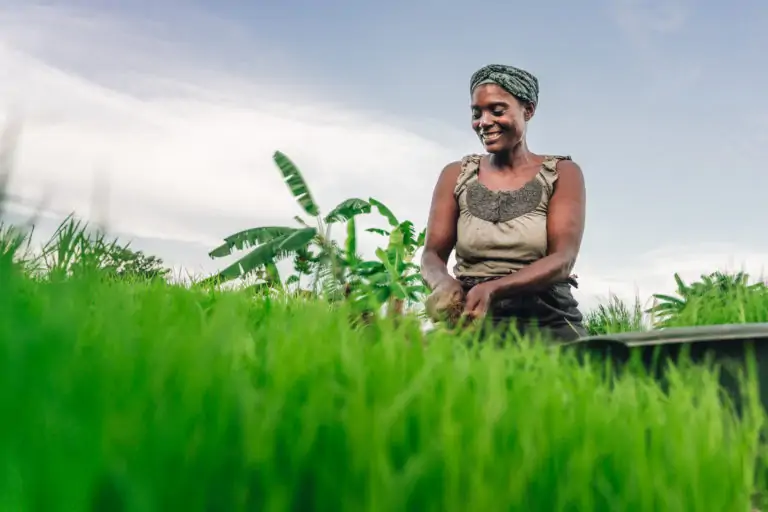2018 was a landmark year for cooperatives in Africa with the establishment of the Alliance Africa Agricultural Co-operative Organization (AAACO). An attempt to breathe new life into cooperative farming on the continent, the EU-backed, five-year action plan has the goal of improving governance and sustainability of agricultural practices used by farmer members.
80 per cent of African countries signed up to the initiative, and the UN recently added to the momentum through the International Day of Cooperatives, held on July 3rd, a day of recognition of the more than 1 billion members of cooperatives worldwide.
Coop contribution to post-pandemic recovery
Prior to the pandemic, there had been a renewed and growing confidence around the potential cooperatives have to transform the fortunes of countries whose agriculture capability had not been realised.
Historically, governments had mismanaged these organisations. Later, reforms excluding government control saw problems at independent cooperatives, with ethical standards not what they should have been.
The practice of side selling was particularly prevalent, whereby farmer members would routinely sell some of their products to outlets other than their cooperatives in order to generate a quick return, taking away from overall cooperative effectiveness.
Now that governance has been prioritised and improved, the UN is throwing its weight behind coops as a means of helping to restart post-pandemic economies, continuing to increase prosperity while reducing inequality.
Agtech creating extra value
There is plentiful evidence to show cooperatives in Africa can deliver.
Ethiopia opened up its coffee sector to cooperatives 20 years ago and it has been of great value to smallholder coffee producers.
Collectively they have brought greater heft internationally in the production and marketing of branded coffee products, whose farmers use either organic or sustainable practices in order to qualify for fair trade labels which draw premium prices.
The number of dairy cooperatives has also flourished throughout Africa, as farmers recognise the need to come together to afford the equipment needed for storage of perishable products. Because the majority of farming in the continent is carried out by smallholders, collective power is important in competing with other market players.
The initiative and innovation accumulating around cooperatives takes many guises.
Ghanaian agtech start-up DigiExt provides tech platforms helping farming coops grow and sell produce to processing companies and export agencies. The company’s technology is solving key issue smallholder farmers routinely encounter – lack of access to credit.
The start-up gathers data by satellites and drones, weather and soil sensors to distribute relevant, timely production information to farmers in a cost-effective manner.
DigiExt services several farm cooperatives and organisations that support farmers, such as the Peasant Farmers Association, helping their farmers with their day-to-day activities as well as getting their produce to market.
The tech enables processing companies and export agencies to register and provide lists of crops they require. Coops use the platform to monitor and provide the necessary feedstock.
Banks have confidence in the technology, due to the degree of control of the off taking process and productivity and are increasingly offering credit.
By the same token, the insurance industry has been reassured, as the surveillance involved shows how losses are being prevented.
The firm’s role in risk mitigation augurs well for African farming cooperatives. At the present moment, the company is managing over 200,000 farmers covering a land area of over two million acres.
Besides access to credit there are other advantages to the pooling of resources, mutual support and knowledge sharing that is part and parcel of cooperative business.
Pooling resources for better results
In the Ivory Coast, coop members have combined their knowledge to create seeds more adapted to the local environment. The country’s cocoa yields have subsequently jumped 83%. If similar innovation is applied to other locally consumed crops, it could herald a more prosperous outcome than previously envisioned.
Other stories of successful cooperatives abound, with many from modest beginnings.
The 1,300 strong Patikhoriya Cooperative in Kathmandu, Nepal, have, through training and equipment purchases reduced their feeding time for livestock from hours to just 20 minutes.
In 2010, USAID helped a dozen women in Tanzania form the Wanawake Kwanza (Women First) growers association. In two months, the women grew enough vegetables on a 0.4-hectare plot to save $500. Their success led the village to grant them another 0.6 hectares.
The similar achievement has been noted for women shea nut harvesters in Ghana who produce high-quality crops for export to food and cosmetic markets worldwide.
Applied at scale the possibilities for cooperatives are encouraging, with healthier economic and environmental outcomes throughout Africa and the wider world.
Cooperatives in Africa
The establishment of the Alliance Africa Agricultural Co-operative Organization (AAACO) in 2018, supported by the EU and celebrated by the UN’s International Day of Cooperatives, marks a pivotal move towards revitalising cooperative farming in Africa. Aimed at enhancing governance and sustainability, this initiative has seen significant sign-up from African countries, driving towards a future where agricultural practices are not only improved but also sustainable and ethical.
Farrelly Mitchell offers a range of developmental services aimed at empowering the food and agribusiness industries throughout the global south, including capacity building and training, institutional development, program design, market linkages, and much more. If you are looking for expert advice and insights, reach out to our team today.











